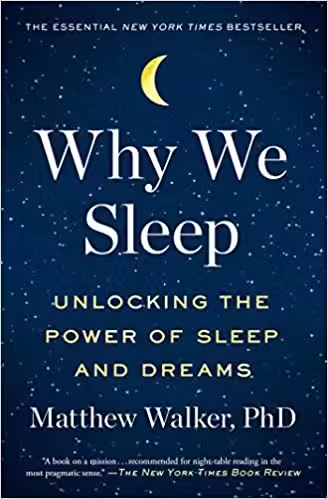Sleep is life. People spend about one-third of their lives sleeping, but they scarcely realize how vital it is. Not only is it essential for your physiological health, but also for your psychological well-being. Understanding sleep and how to get all the Benefits Of Sleep is crucial.
Although everyone sleeps differently and requires different amounts of sleep each night, there are some standard functions that all sleepers share. Our bodies need sleep to recharge. It is also crucial for our brain and provides a way to process information and organize memories. This process can be compared to defragmenting a hard disk on a computer.
Benefits Of Sleep
Sleep deprivation can lead to mental disorders, hallucinations and anxiety, and other health problems. It can even cause death in extreme cases. Overwork and lack of sleep are thought to be closely linked to each other. You can improve your sleep quality by changing your lifestyle or how you approach sleep.
So, How Do You Define Sleep?
Before we delve into the benefits of sleep, we need to know what sleep is. Sleep is a naturally recurring state of mind and body. It’s when your brain turns off its thinking mode and focuses on sleep-related tasks like bodily housekeeping, resource allocation, temperature regulation, etc. It is a state of reduced sensitivity to environmental stimuli. The state of sleep can be rapidly changed and reversed, which differentiates it from death, coma, and hibernation.
Sleep is marked by altered consciousness and reduced muscle activity as well as sensory activity. This state is when most of the body’s systems go into anabolic mode, which helps restore the immune and nervous systems as well as the muscular and skeletal systems. Restoration of these systems allows the maintenance of memory, cognitive function, and food, while playing a vital role in the improved functionality of the endocrine system.
Sleepon is the ultimate game-changer in the world of sleep management!
Phases of Sleep
During sleep, our body switches between two distinct modes: REM and non-REM. Although REM is shorthand for rapid eye movement, this sleep mode also has other aspects, such as virtual paralysis through the inhibition of almost all voluntary muscles. During the non-REM stage, muscle paralysis doesn’t occur, which is why some people can walk while sleeping, because they are stuck in non-REM sleep.
In a standard sleeping period, it is possible to go through between four and five sleep cycles. Each cycle of sleep consists of four distinct sleep stages. The three initial stages of sleep comprise non-REM activities. The first stage is short, which is the time for sleeping off and transitioning into sleep. In Stage 2, your mind and body slow down as you go to sleep. It is easiest to wake up during the initial two phases.
Stage 3, also known as deep sleep, is when the body goes into recuperation mode, which slows down even more. While in this stage, the brain’s overall activity decreases and produces a distinctive pattern of intense pulses, which are believed to keep you from being awakened. The final stage of sleep is REM sleep.
Go2Sleep 3: The Ultimate Sleep Companion
The Go2Sleep 3 revolutionary home sleep monitor is designed to monitor and improve your sleep quality with its comfortable, widened ring holder and advanced algorithms for precise monitoring of blood oxygen, heart rate, and blood glucose.
Effects of Inadequate Sleep
Short Term:
Many psychosocial concerns have been identified that can be linked to sleep disturbance in adults, ranging from depression and anxiety to cognitive, memory, and performance impairments. Sleep disturbances affect cognitive function and performance in various areas, including vigilance in the administrative process, recall formation, decision-making, risk-taking behavior, and judgment. Poor sleep quality negatively impacts the emotional state of an individual as well.
Research carried out by Dr. Dinges and other scientists has revealed that cognitive performance and concentration abilities start to decrease rapidly following more than sixteen hours of uninterrupted wakefulness. Sleep-related impairments due to sleep deprivation may accumulate over time, leading to a gradual decline in alertness. Dr. Dinges and his colleagues have observed that those who do not sleep for a long time or are frequently disturbed while sleeping are unaware of the accumulating sleep deficiencies and their impacts on cognitive functioning during the day, including their working memory, performance, speed as well and precision.
Sleep deficiency can also impact a person’s psychological health, increasing stress levels and significantly impacting the way one interprets emotions and psychosocial perception of the world. Research suggests that mood changes could be due to the impact of sleep deprivation on the processing of emotional memory, or in the sense of our tendency to remember negative experiences after a lack of sleep.
Likewise, an increase in autonomic sympathetic stimulation is the result of sleep fragmentation and disturbed sleep. The studies show that the amount of increased sympathetic activity was caused by the discontinuity in sleep.
An analysis of the adolescents of two Finnish communities discovered that sleep problems were highly related to headaches and abdominal pain. Girls are more prone to these symptoms than boys, and the increasing rate of pain and sleep issues is linked to psychosocial issues, like drug use and psychiatric issues. Studies also reveal that partial sleep loss resulting from sleep interruption is more detrimental to a positive mood than sleep loss due to putting off bedtime. In children, sleep affects neurobehavioral functions, particularly ones that involve carrying out complicated tasks. Sleep is also closely related to kidney functioning. People with kidney problems have stated that they have very disturbed sleep cycles.
Long Term:
The long-term effects of sleep disruption include dyslipidemia, hypertension, CVD, weight-related problems, and metabolic syndrome. The evidence also suggests that sleep disruptions could increase the risk of certain types of cancer and cause death. Furthermore, it can also aggravate the symptoms of certain digestive diseases.
Adults who had sleep disturbances were found to have elevated blood pressure and a higher chance of developing hypertension due to problems with the metabolism of glucose and the inflammatory process of the body. The odds of developing hypertension are relatively higher in people who have insomnia. A link between short sleep duration and the chances of myocardial infarction was also seen in middle-aged people. Sleep loss is thought to affect glucose metabolism, mainly through its effect on insulin sensitivity and increasing the amount of food consumed.
Sleep disruption has been linked with weight gain and other weight issues, both in adults and adolescents. A study on male Japanese workers found that the alternating shifts increased the frequency of smoking, drinking, and a lack of routine exercise, which led to a rise in BMI. The disruption of the circadian rhythm and sleep deprivation have been proven to increase the chances of tumor growth and could boost the likelihood of developing cancer.
Exposure to light during the evening can reduce melatonin production, which can lead to an increase in hormones that regulate reproduction. Melatonin also has many other properties, such as DNA repair and a reduction in the growth of tumors, and also acts as a potent free-radical scavenger. Staying awake for a long time can affect all these positive effects of melatonin.
Prolonged or severe sleep restriction can lead to premature death. In a study, relatives and friends of adolescent suicide victims reported sleeping disturbances for their deceased loved ones. A history of sleep disorders, such as insomnia, is strongly linked to suicidal cases. The increased incidence of cardiovascular disease because of sleeping problems can also lead to the death of an individual. Disorders of the gastrointestinal tract and sleep disruptions are linked to each other. Moreover, lack of sleep can induce the symptoms associated with inflammatory bowel diseases, irritable bowel syndrome, and gastroesophageal respiratory disease.
Why We Sleep Book by Matthew Walker
Ever wondered why you can’t function without your daily dose of Z’s? Matthew Walker’s Why We Sleep holds the answers! This illuminating read explores the mysteries of sleep, blending scientific insights with practical tips, all wrapped in an engaging narrative. You’ll never look at your pillow the same way again!
Why We SleepBenefits Of Sleep
Quality of sleep can help with all sorts of issues, ranging from heart problems to workouts. Having enough sleep allows the cells to regain their power, hence boosting the immune system and protecting the body from numerous diseases. Resting heart muscles also improve the functionality of the cardiovascular system, and the chances of heart problems decrease significantly. Sleeping can also prevent weight gain because sleeping at night takes away the need for late-night munching.
Having adequate rest improves mood and working ability as well. While sleeping, the energy restoration mechanism is accelerated, and so sleeping can increase productivity at work. More energy elicits exercise, which in turn benefits the whole body. Another crucial benefit of sleep is improved memory. During sleep, the mind processes and stores the memories of the day, allowing you to attain an extensive collection of beautiful memories.
Sleep Duration
The recommendations for sleep duration are intended to be a guideline for health professionals and must be tailored individually to each patient at the clinic. Sleep requirements are determined by various factors that include our genetic makeup, our environment, and behavioral variables. For instance, high-performance athletes require more sleep to perform at a high level and recover from rigorous physical training. Their maturation stages can influence the need for sleep among adolescents and children, regardless of chronological age. The result is that sleeping patterns can occur sooner (at an earlier age) for specific people or later over time for others.
The ideal amount of sleep is defined by the volume of rest necessary to improve outcomes (e.g., performance, function, mental health, physical health, quality of life, etc.). This implies that there may be a variety of dose-response curves that could differ in their shape and outcomes. In general, the peak of every health issue should be within the recommended sleeping duration. However, the precise amount of rest you need each night to optimize every health outcome isn’t accessible or universal because the ideal amount for a particular outcome may differ from another outcome. For instance, 9 hours of rest each night is ideal for improving athletic performance, and 7 hours may be ideal for academic performance.
Ways To Acquire Better Sleep
Although you may not completely manage the elements that affect sleep, you can implement practices that promote better sleep. Individuals should go to bed and wake up at the exact hour every day, making sure to keep the differences between sleeping schedules during weekends and weeknights to not more than an hour. Consistency helps the body’s natural sleep-wake cycle.
Do not go to bed full of food or feel stuffed. Avoid eating large or big meals within two hours of the time before going to bed. Alcohol, caffeine, and nicotine should be avoided, too. The stimulant effects of caffeine and nicotine can last for hours and can disrupt good sleep. Even though alcohol may cause you to feel tired, it can disturb your sleep later in the night. Always make sure that the room is ideal for sleep. This usually means a quiet, cool, and dark space. Exposure to light can be more challenging for ideal sleep.
Avoid using lighting-emitting screens before going to bed. Using room-darkening shades, headphones, a fan, or other gadgets to create a suitable space can also help. Engaging in calming activities before going to bed, such as bathing or using techniques to relax, can help get more restful sleep.
Long naps during the day can interfere with sleep at night. Even if one needs to sleep, one should take a nap for no more than 30 minutes. If one is working at night, then they should be required to take a nap during the day to make up for the sleep deficit.
Regular exercise can also lead to better sleep. Do not exercise too near bedtime. However, a day spent outside can be beneficial. Making efforts to address concerns or worries before bedtime is a great activity. Try writing down the things that are on your mind and then saving them for the next day. Management of stress and meditation can help reduce anxiety and pave the way for quality sleep and all the benefits of sleep.
Everybody has one or two nights of sleeplessness; however, consult your physician if you frequently have trouble sleeping. Identifying and treating any underlying issues can help you achieve the restful sleep you’re entitled to.
Frequently Asked Questions:
What is sleep, and why is it essential for health?
Sleep is a naturally recurring state of mind and body characterized by reduced sensitivity to environmental stimuli and altered consciousness. It is essential because it helps restore the immune, nervous, muscular, and skeletal systems, processes information, organizes memories, and maintains overall physical and psychological health.
How can I improve my sleep quality?
To improve sleep quality, maintain a consistent sleep schedule, avoid heavy meals, alcohol, caffeine, and nicotine before bed, and create a quiet, dark, cool sleeping environment. Engage in relaxing activities, limit daytime naps, exercise regularly but not near bedtime, and manage stress effectively. If sleep problems persist, consult a healthcare professional.
What are the long-term health risks associated with chronic sleep disruption?
Long-term sleep disruption can increase the risk of hypertension, cardiovascular disease, obesity, metabolic syndrome, certain cancers, and even contribute to premature death. It can also cause weight gain, disturb glucose metabolism, and exacerbate chronic diseases such as kidney issues and gastrointestinal disorders.
What are the short-term effects of sleep deprivation?
Short-term sleep deprivation can impair cognitive functions, reduce concentration, cause emotional instability, and increase stress levels. It can also lead to hallucinations, anxiety, performance impairments, and affect decision-making and judgment.
What are the different phases of sleep and their functions?
Sleep comprises two main modes: REM and non-REM. Non-REM sleep has three stages, including light sleep, deep sleep for recuperation, and transition phases. REM sleep involves rapid eye movements and muscle paralysis, where the brain processes emotional memories and dreams. The sleep cycle includes multiple stages that support physical and mental restoration.
References:
- Medic, Goran, et al. “Short- and Long-Term Health Consequences of Sleep Disruption.” Nature and Science of Sleep, vol. 9, 2017, pp. 151–61.
- Worley, Susan L. “The Extraordinary Importance of Sleep”. The Extraordinary Importance of Sleep, 2018. NCBI.
- Chaput, Jean-Philippe, et al. “Sleeping Hours: What Is the Ideal Number and How Does Age Impact This?” Nature and Science of Sleep, vol. 10, 2018, pp. 421–30.
- ASA Authors & ReviewersSleep Physician at American Sleep Association. Reviewers and Writers Board-certified sleep M.D. physicians, scientists, editors, and writers for ASA. “What Is Sleep & Why Is It Important for Health?” American Sleep Association, 27 July 2021.
- “Sleep Tips: 6 Steps to Better Sleep.” Mayo Clinic, 17 Apr. 2020.
- Suni, Eric. “What Happens When You Sleep?” Sleep Foundation, 30 Oct. 2020.
- Mandal, Ananya, MD. “What Is Sleep?” News-Medical.Net, 30 Jan. 2020.
Body, Mind, And Soul For A Fulfilled Life!





